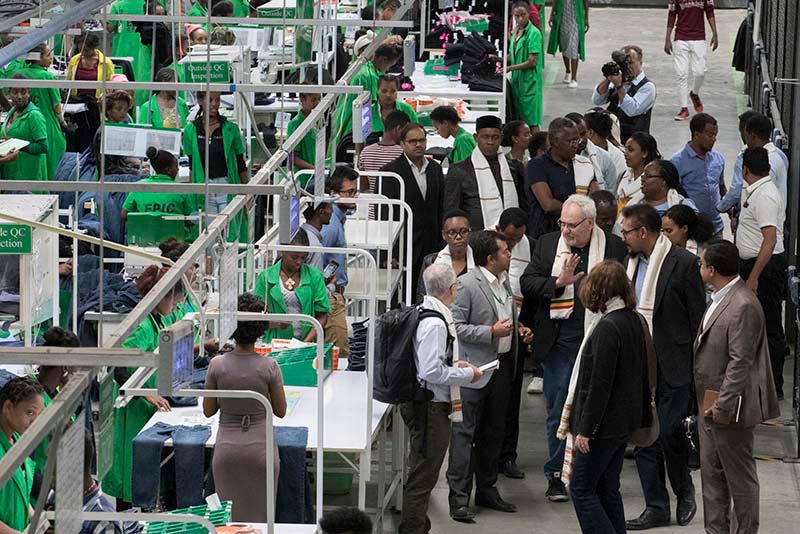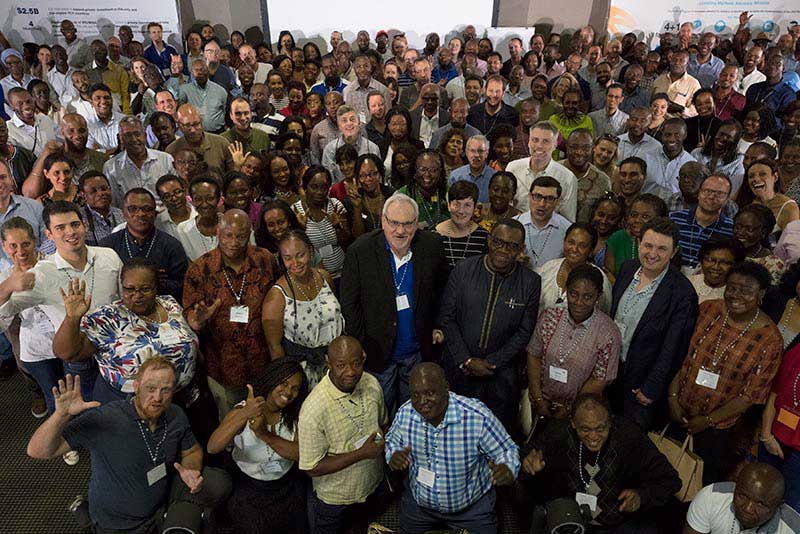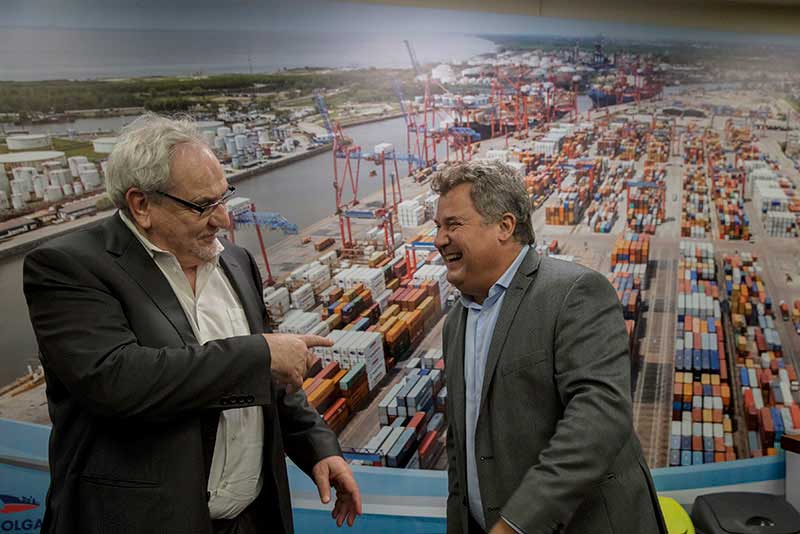By John Donnelly
In early September, on an unseasonably cold autumn morning in Washington, Philippe Le Houérou, IFC’s CEO for the last four-and-a-half years, gathered his senior leaders together on Webex. He opened by saying he had hired nearly all of them and, as they looked on in a virtual room via tiny squares, that this was their last meeting together. By the end of the month, he would retire.
Philippe―as he is known in part because few non-French can pronounce his surname―proceeded to tell his team that they now needed to stick together and build on his Creating Markets strategy, which he called IFC 3.0. The essence of the strategy is to be more proactive, entrepreneurial, analytic, and, based on a clear understanding of country needs, to put together projects (some from scratch) that will attract more private sector investments, especially in the poorest and fragile countries.

Philippe Le Houérou tours the Hawassa Industrial Park in Hawassa, Ethiopia in 2018.
He finished and the conversation turned personal. A couple of people acknowledged to him that they resisted his strategy at first―“you had to drag us kicking and screaming,” said one―but now were converts. One talked about how Philippe had made a clear and important distinction “that private sector investment is very different than private sector development.” And another spoke about how tough he was in enforcing hiring practices, resulting in a more talented, more diverse staff: “You changed IFC through diversity.”

Philippe Le Houérou with IFC staff members in Mookgopong, South Africa in 2018.
It’s a truism that you don’t always know what you’ve lost until it’s gone. Philippe was IFC’s 12th chief executive, the lone Frenchman among them, the only long-time World Bank veteran, one of the few who grew up in a developing country (he lived in several African countries), and the one executive who managed to triple IFC’s paid-in capital from shareholders.
These facts matter, but there’s more. They don’t reveal his force of personality, sometimes stormy, sometimes charming, or his iron will. They don’t show his single-mindedness and his unwavering intent to focus on existential changes that, in his words, put development at the heart of IFC, and IFC at the heart of development.

Philippe Le Houérou with Roberto Negro, CEO of Exolgan, in Buenos Aires in 2016.
He built a new strategy and rewired the institution. “Vision without execution is illusion,” he liked to say. Now it’s up to his team to carry forward his vision.
Published in September 2020
